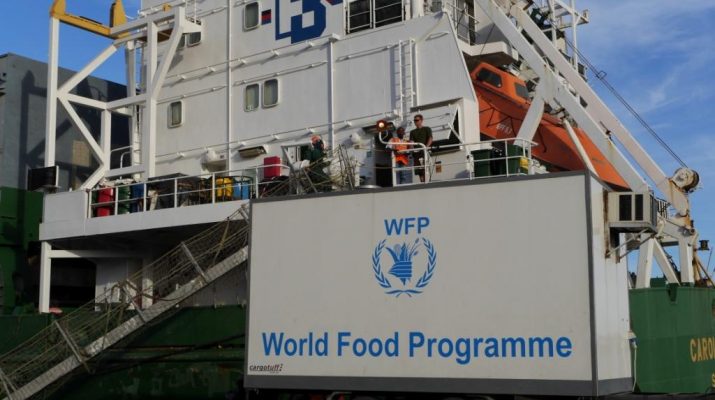The programme, funded by UK aid from the government of the United Kingdom, is currently providing unrestricted cash assistance to 75,000 displaced people, offering them choice and freedom to prioritize their needs.
The UK officials saw firsthand how vulnerable people in Otash Camp receive cash assistance from selected retailers using prepaid cards swiped against a Point of Service (POS) device.
Head of the British Diplomatic Service Simon McDonald, and Department for International Development (DFID) Permanent Secretary Mark Lowcock, formally launched the programme today. Their visit is part of a dialogue with a wide range of stakeholders about how the UK can support development in Sudan and achieve shared objectives.
McDonald said: UK aid is supporting Sudan’s most vulnerable and excluded people to meet their basic needs, build their resilience to crisis, and lay the foundations for a more democratic, inclusive and peaceful future.
With a contribution of £3.1 million (approximately US$4.5 million) from DFID, the cash assistance programme in Otash Camp is part of WFP’s continuing efforts to provide new and flexible solutions to ending hunger and promoting self-reliance among vulnerable communities in Sudan.
“DFID is proud to launch this innovative cash programme which will provide 75,000 people in Otash Camp with cash assistance, allowing them greater choice over what they buy and stimulating the local economy”, Lowcock said.
The current monthly cash entitlement is SDG 55 (US$8.53) which is adjusted for changes in the real market prices of cereals and beans, the food items that make up WFP’s food allocation for displaced people in Darfur. “Cash assistance enables me to buy the food my family needs from any market and at affordable prices,” said Umsineen Abdulaziz Abdalla, a displaced mother of seven children living in Otash Camp.
The UK has been a major donor to WFP in Sudan for many years. Since 2013, DFID has contributed more than £52 million to the cash and vouchers programme which currently supports more than half a million vulnerable and food-insecure displaced people and injects some £31.5 million into the local economy. DFID is also supporting a study that will determine the effectiveness and efficiency of the cash assistance programme in improving the food security and nutrition of the people it is designed to assist.
We are grateful to the British people, through DFID, for supporting our pioneering work in promoting self-reliance among the communities that we assist, said WFP Sudan Representative and Country Director Matthew Hollingworth. The cash and voucher assistance programme helps us respond not only to the food needs of vulnerable people, it also supports local traders and farmers; it’s a win-win situation for everyone.
Sudan is one of WFP’s most complex operations, with recurring conflict, new and protracted displacement, insecurity, and crisis levels of malnutrition and food insecurity.
In 2017, WFP plans to assist 4.2 million vulnerable people in Sudan through a range of activities, including emergency food and cash-based transfers, nutritional support and resilience-building activities to help communities become independent. Through the Department for International Development, the UK is committed to continued support for humanitarian needs, early recovery and development in Darfur and throughout Sudan.

